#Rainover
Photo

The Fall of Communism in Bulgaria November 10 1989
The Palace Coup of November 10, 1989
Assisted by the Soviet Embassy, the leadership of the Bulgarian Communist Party orchestrated significant changes within their ranks. On November 10, 1989, a party plenum released Todor Zhivkov from his position as General Secretary of the Central Committee. Zhivkov, feeling aged and weakened, opted not to engage in another strenuous battle for power.
Quote:
“Look at me – I march on.
Not with the swing and shiver of a victory march
Not along a route lined solemnly,
Not under a rain of flowers.”
Excerpt from ‘In Spite of Everything’ by Bogomil Rainov (b. 1919), translated by Roy MacGregor-Hastie
Subtitle 2: The Years of Democracy: 1990 and Beyond City Tours Istanbul.
Questioning 45 Years of Rule
The events of November 10, 1989, marked a “palace coup” orchestrated by the Communist Party leadership to retain control over state governance. This change was heavily influenced by the Soviet Union. Todor Zhivkov was replaced as the party leader and President of the State Council by Petar Mladenov, a Soviet-educated figure who had served as Foreign Minister and been a long-standing member of the Political Bureau of the Central Committee of the Bulgarian Communist Party (BCP). In January 1990, Andrei Loukanov, another Soviet-trained individual with a history as a minister and representative of the communist elite, assumed the position of Prime Minister. Both leaders emphasized that the Bulgarian “restructuring,” following the example of the Soviet “perestroika,” should focus on transforming and improving the existing system, and the process should be led by the Communist Party.
November 10, 1989, witnessed a significant shift in Bulgaria’s political landscape, as the Communist Party leadership executed a “palace coup,” paving the way for changes and opening the door to a new era of democracy.
0 notes
Photo

The Fall of Communism in Bulgaria November 10 1989
The Palace Coup of November 10, 1989
Assisted by the Soviet Embassy, the leadership of the Bulgarian Communist Party orchestrated significant changes within their ranks. On November 10, 1989, a party plenum released Todor Zhivkov from his position as General Secretary of the Central Committee. Zhivkov, feeling aged and weakened, opted not to engage in another strenuous battle for power.
Quote:
“Look at me – I march on.
Not with the swing and shiver of a victory march
Not along a route lined solemnly,
Not under a rain of flowers.”
Excerpt from ‘In Spite of Everything’ by Bogomil Rainov (b. 1919), translated by Roy MacGregor-Hastie
Subtitle 2: The Years of Democracy: 1990 and Beyond City Tours Istanbul.
Questioning 45 Years of Rule
The events of November 10, 1989, marked a “palace coup” orchestrated by the Communist Party leadership to retain control over state governance. This change was heavily influenced by the Soviet Union. Todor Zhivkov was replaced as the party leader and President of the State Council by Petar Mladenov, a Soviet-educated figure who had served as Foreign Minister and been a long-standing member of the Political Bureau of the Central Committee of the Bulgarian Communist Party (BCP). In January 1990, Andrei Loukanov, another Soviet-trained individual with a history as a minister and representative of the communist elite, assumed the position of Prime Minister. Both leaders emphasized that the Bulgarian “restructuring,” following the example of the Soviet “perestroika,” should focus on transforming and improving the existing system, and the process should be led by the Communist Party.
November 10, 1989, witnessed a significant shift in Bulgaria’s political landscape, as the Communist Party leadership executed a “palace coup,” paving the way for changes and opening the door to a new era of democracy.
0 notes
Photo
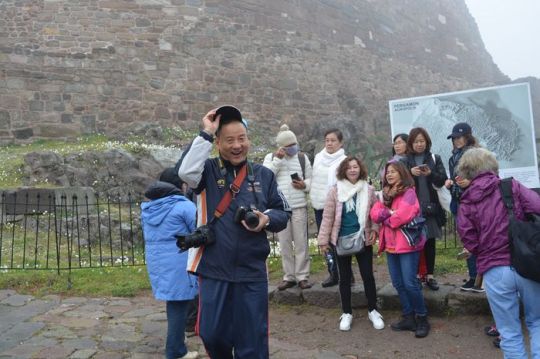
The Fall of Communism in Bulgaria November 10 1989
The Palace Coup of November 10, 1989
Assisted by the Soviet Embassy, the leadership of the Bulgarian Communist Party orchestrated significant changes within their ranks. On November 10, 1989, a party plenum released Todor Zhivkov from his position as General Secretary of the Central Committee. Zhivkov, feeling aged and weakened, opted not to engage in another strenuous battle for power.
Quote:
“Look at me – I march on.
Not with the swing and shiver of a victory march
Not along a route lined solemnly,
Not under a rain of flowers.”
Excerpt from ‘In Spite of Everything’ by Bogomil Rainov (b. 1919), translated by Roy MacGregor-Hastie
Subtitle 2: The Years of Democracy: 1990 and Beyond City Tours Istanbul.
Questioning 45 Years of Rule
The events of November 10, 1989, marked a “palace coup” orchestrated by the Communist Party leadership to retain control over state governance. This change was heavily influenced by the Soviet Union. Todor Zhivkov was replaced as the party leader and President of the State Council by Petar Mladenov, a Soviet-educated figure who had served as Foreign Minister and been a long-standing member of the Political Bureau of the Central Committee of the Bulgarian Communist Party (BCP). In January 1990, Andrei Loukanov, another Soviet-trained individual with a history as a minister and representative of the communist elite, assumed the position of Prime Minister. Both leaders emphasized that the Bulgarian “restructuring,” following the example of the Soviet “perestroika,” should focus on transforming and improving the existing system, and the process should be led by the Communist Party.
November 10, 1989, witnessed a significant shift in Bulgaria’s political landscape, as the Communist Party leadership executed a “palace coup,” paving the way for changes and opening the door to a new era of democracy.
0 notes
Photo
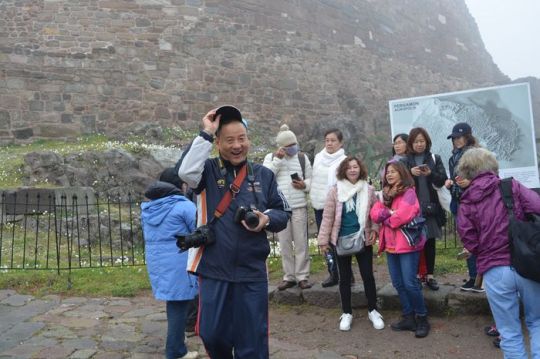
The Fall of Communism in Bulgaria November 10 1989
The Palace Coup of November 10, 1989
Assisted by the Soviet Embassy, the leadership of the Bulgarian Communist Party orchestrated significant changes within their ranks. On November 10, 1989, a party plenum released Todor Zhivkov from his position as General Secretary of the Central Committee. Zhivkov, feeling aged and weakened, opted not to engage in another strenuous battle for power.
Quote:
“Look at me – I march on.
Not with the swing and shiver of a victory march
Not along a route lined solemnly,
Not under a rain of flowers.”
Excerpt from ‘In Spite of Everything’ by Bogomil Rainov (b. 1919), translated by Roy MacGregor-Hastie
Subtitle 2: The Years of Democracy: 1990 and Beyond City Tours Istanbul.
Questioning 45 Years of Rule
The events of November 10, 1989, marked a “palace coup” orchestrated by the Communist Party leadership to retain control over state governance. This change was heavily influenced by the Soviet Union. Todor Zhivkov was replaced as the party leader and President of the State Council by Petar Mladenov, a Soviet-educated figure who had served as Foreign Minister and been a long-standing member of the Political Bureau of the Central Committee of the Bulgarian Communist Party (BCP). In January 1990, Andrei Loukanov, another Soviet-trained individual with a history as a minister and representative of the communist elite, assumed the position of Prime Minister. Both leaders emphasized that the Bulgarian “restructuring,” following the example of the Soviet “perestroika,” should focus on transforming and improving the existing system, and the process should be led by the Communist Party.
November 10, 1989, witnessed a significant shift in Bulgaria’s political landscape, as the Communist Party leadership executed a “palace coup,” paving the way for changes and opening the door to a new era of democracy.
0 notes
Photo

The Fall of Communism in Bulgaria November 10 1989
The Palace Coup of November 10, 1989
Assisted by the Soviet Embassy, the leadership of the Bulgarian Communist Party orchestrated significant changes within their ranks. On November 10, 1989, a party plenum released Todor Zhivkov from his position as General Secretary of the Central Committee. Zhivkov, feeling aged and weakened, opted not to engage in another strenuous battle for power.
Quote:
“Look at me – I march on.
Not with the swing and shiver of a victory march
Not along a route lined solemnly,
Not under a rain of flowers.”
Excerpt from ‘In Spite of Everything’ by Bogomil Rainov (b. 1919), translated by Roy MacGregor-Hastie
Subtitle 2: The Years of Democracy: 1990 and Beyond City Tours Istanbul.
Questioning 45 Years of Rule
The events of November 10, 1989, marked a “palace coup” orchestrated by the Communist Party leadership to retain control over state governance. This change was heavily influenced by the Soviet Union. Todor Zhivkov was replaced as the party leader and President of the State Council by Petar Mladenov, a Soviet-educated figure who had served as Foreign Minister and been a long-standing member of the Political Bureau of the Central Committee of the Bulgarian Communist Party (BCP). In January 1990, Andrei Loukanov, another Soviet-trained individual with a history as a minister and representative of the communist elite, assumed the position of Prime Minister. Both leaders emphasized that the Bulgarian “restructuring,” following the example of the Soviet “perestroika,” should focus on transforming and improving the existing system, and the process should be led by the Communist Party.
November 10, 1989, witnessed a significant shift in Bulgaria’s political landscape, as the Communist Party leadership executed a “palace coup,” paving the way for changes and opening the door to a new era of democracy.
0 notes
Photo

The Fall of Communism in Bulgaria November 10 1989
The Palace Coup of November 10, 1989
Assisted by the Soviet Embassy, the leadership of the Bulgarian Communist Party orchestrated significant changes within their ranks. On November 10, 1989, a party plenum released Todor Zhivkov from his position as General Secretary of the Central Committee. Zhivkov, feeling aged and weakened, opted not to engage in another strenuous battle for power.
Quote:
“Look at me – I march on.
Not with the swing and shiver of a victory march
Not along a route lined solemnly,
Not under a rain of flowers.”
Excerpt from ‘In Spite of Everything’ by Bogomil Rainov (b. 1919), translated by Roy MacGregor-Hastie
Subtitle 2: The Years of Democracy: 1990 and Beyond City Tours Istanbul.
Questioning 45 Years of Rule
The events of November 10, 1989, marked a “palace coup” orchestrated by the Communist Party leadership to retain control over state governance. This change was heavily influenced by the Soviet Union. Todor Zhivkov was replaced as the party leader and President of the State Council by Petar Mladenov, a Soviet-educated figure who had served as Foreign Minister and been a long-standing member of the Political Bureau of the Central Committee of the Bulgarian Communist Party (BCP). In January 1990, Andrei Loukanov, another Soviet-trained individual with a history as a minister and representative of the communist elite, assumed the position of Prime Minister. Both leaders emphasized that the Bulgarian “restructuring,” following the example of the Soviet “perestroika,” should focus on transforming and improving the existing system, and the process should be led by the Communist Party.
November 10, 1989, witnessed a significant shift in Bulgaria’s political landscape, as the Communist Party leadership executed a “palace coup,” paving the way for changes and opening the door to a new era of democracy.
0 notes
Photo
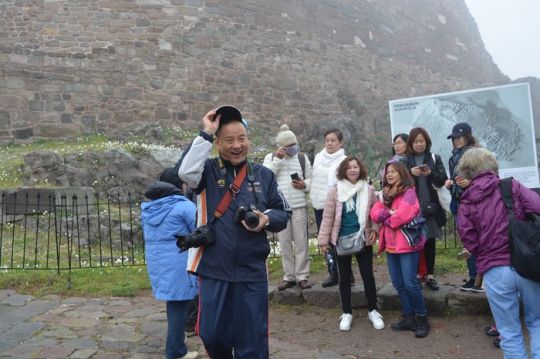
The Fall of Communism in Bulgaria November 10 1989
The Palace Coup of November 10, 1989
Assisted by the Soviet Embassy, the leadership of the Bulgarian Communist Party orchestrated significant changes within their ranks. On November 10, 1989, a party plenum released Todor Zhivkov from his position as General Secretary of the Central Committee. Zhivkov, feeling aged and weakened, opted not to engage in another strenuous battle for power.
Quote:
“Look at me – I march on.
Not with the swing and shiver of a victory march
Not along a route lined solemnly,
Not under a rain of flowers.”
Excerpt from ‘In Spite of Everything’ by Bogomil Rainov (b. 1919), translated by Roy MacGregor-Hastie
Subtitle 2: The Years of Democracy: 1990 and Beyond City Tours Istanbul.
Questioning 45 Years of Rule
The events of November 10, 1989, marked a “palace coup” orchestrated by the Communist Party leadership to retain control over state governance. This change was heavily influenced by the Soviet Union. Todor Zhivkov was replaced as the party leader and President of the State Council by Petar Mladenov, a Soviet-educated figure who had served as Foreign Minister and been a long-standing member of the Political Bureau of the Central Committee of the Bulgarian Communist Party (BCP). In January 1990, Andrei Loukanov, another Soviet-trained individual with a history as a minister and representative of the communist elite, assumed the position of Prime Minister. Both leaders emphasized that the Bulgarian “restructuring,” following the example of the Soviet “perestroika,” should focus on transforming and improving the existing system, and the process should be led by the Communist Party.
November 10, 1989, witnessed a significant shift in Bulgaria’s political landscape, as the Communist Party leadership executed a “palace coup,” paving the way for changes and opening the door to a new era of democracy.
0 notes
Photo

The Fall of Communism in Bulgaria November 10 1989
The Palace Coup of November 10, 1989
Assisted by the Soviet Embassy, the leadership of the Bulgarian Communist Party orchestrated significant changes within their ranks. On November 10, 1989, a party plenum released Todor Zhivkov from his position as General Secretary of the Central Committee. Zhivkov, feeling aged and weakened, opted not to engage in another strenuous battle for power.
Quote:
“Look at me – I march on.
Not with the swing and shiver of a victory march
Not along a route lined solemnly,
Not under a rain of flowers.”
Excerpt from ‘In Spite of Everything’ by Bogomil Rainov (b. 1919), translated by Roy MacGregor-Hastie
Subtitle 2: The Years of Democracy: 1990 and Beyond City Tours Istanbul.
Questioning 45 Years of Rule
The events of November 10, 1989, marked a “palace coup” orchestrated by the Communist Party leadership to retain control over state governance. This change was heavily influenced by the Soviet Union. Todor Zhivkov was replaced as the party leader and President of the State Council by Petar Mladenov, a Soviet-educated figure who had served as Foreign Minister and been a long-standing member of the Political Bureau of the Central Committee of the Bulgarian Communist Party (BCP). In January 1990, Andrei Loukanov, another Soviet-trained individual with a history as a minister and representative of the communist elite, assumed the position of Prime Minister. Both leaders emphasized that the Bulgarian “restructuring,” following the example of the Soviet “perestroika,” should focus on transforming and improving the existing system, and the process should be led by the Communist Party.
November 10, 1989, witnessed a significant shift in Bulgaria’s political landscape, as the Communist Party leadership executed a “palace coup,” paving the way for changes and opening the door to a new era of democracy.
0 notes
Photo

The Fall of Communism in Bulgaria November 10 1989
The Palace Coup of November 10, 1989
Assisted by the Soviet Embassy, the leadership of the Bulgarian Communist Party orchestrated significant changes within their ranks. On November 10, 1989, a party plenum released Todor Zhivkov from his position as General Secretary of the Central Committee. Zhivkov, feeling aged and weakened, opted not to engage in another strenuous battle for power.
Quote:
“Look at me – I march on.
Not with the swing and shiver of a victory march
Not along a route lined solemnly,
Not under a rain of flowers.”
Excerpt from ‘In Spite of Everything’ by Bogomil Rainov (b. 1919), translated by Roy MacGregor-Hastie
Subtitle 2: The Years of Democracy: 1990 and Beyond City Tours Istanbul.
Questioning 45 Years of Rule
The events of November 10, 1989, marked a “palace coup” orchestrated by the Communist Party leadership to retain control over state governance. This change was heavily influenced by the Soviet Union. Todor Zhivkov was replaced as the party leader and President of the State Council by Petar Mladenov, a Soviet-educated figure who had served as Foreign Minister and been a long-standing member of the Political Bureau of the Central Committee of the Bulgarian Communist Party (BCP). In January 1990, Andrei Loukanov, another Soviet-trained individual with a history as a minister and representative of the communist elite, assumed the position of Prime Minister. Both leaders emphasized that the Bulgarian “restructuring,” following the example of the Soviet “perestroika,” should focus on transforming and improving the existing system, and the process should be led by the Communist Party.
November 10, 1989, witnessed a significant shift in Bulgaria’s political landscape, as the Communist Party leadership executed a “palace coup,” paving the way for changes and opening the door to a new era of democracy.
0 notes
Photo
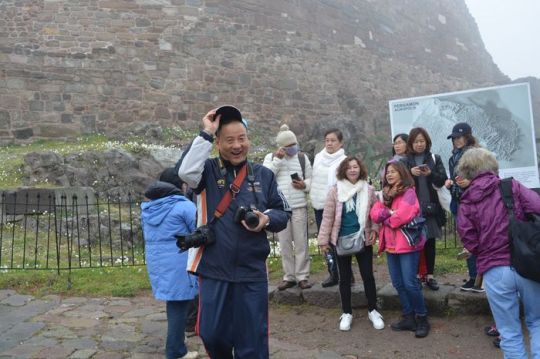
The Fall of Communism in Bulgaria November 10 1989
The Palace Coup of November 10, 1989
Assisted by the Soviet Embassy, the leadership of the Bulgarian Communist Party orchestrated significant changes within their ranks. On November 10, 1989, a party plenum released Todor Zhivkov from his position as General Secretary of the Central Committee. Zhivkov, feeling aged and weakened, opted not to engage in another strenuous battle for power.
Quote:
“Look at me – I march on.
Not with the swing and shiver of a victory march
Not along a route lined solemnly,
Not under a rain of flowers.”
Excerpt from ‘In Spite of Everything’ by Bogomil Rainov (b. 1919), translated by Roy MacGregor-Hastie
Subtitle 2: The Years of Democracy: 1990 and Beyond City Tours Istanbul.
Questioning 45 Years of Rule
The events of November 10, 1989, marked a “palace coup” orchestrated by the Communist Party leadership to retain control over state governance. This change was heavily influenced by the Soviet Union. Todor Zhivkov was replaced as the party leader and President of the State Council by Petar Mladenov, a Soviet-educated figure who had served as Foreign Minister and been a long-standing member of the Political Bureau of the Central Committee of the Bulgarian Communist Party (BCP). In January 1990, Andrei Loukanov, another Soviet-trained individual with a history as a minister and representative of the communist elite, assumed the position of Prime Minister. Both leaders emphasized that the Bulgarian “restructuring,” following the example of the Soviet “perestroika,” should focus on transforming and improving the existing system, and the process should be led by the Communist Party.
November 10, 1989, witnessed a significant shift in Bulgaria’s political landscape, as the Communist Party leadership executed a “palace coup,” paving the way for changes and opening the door to a new era of democracy.
0 notes
Photo
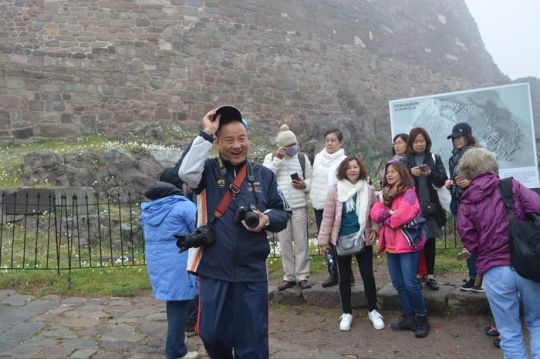
The Fall of Communism in Bulgaria November 10 1989
The Palace Coup of November 10, 1989
Assisted by the Soviet Embassy, the leadership of the Bulgarian Communist Party orchestrated significant changes within their ranks. On November 10, 1989, a party plenum released Todor Zhivkov from his position as General Secretary of the Central Committee. Zhivkov, feeling aged and weakened, opted not to engage in another strenuous battle for power.
Quote:
“Look at me – I march on.
Not with the swing and shiver of a victory march
Not along a route lined solemnly,
Not under a rain of flowers.”
Excerpt from ‘In Spite of Everything’ by Bogomil Rainov (b. 1919), translated by Roy MacGregor-Hastie
Subtitle 2: The Years of Democracy: 1990 and Beyond City Tours Istanbul.
Questioning 45 Years of Rule
The events of November 10, 1989, marked a “palace coup” orchestrated by the Communist Party leadership to retain control over state governance. This change was heavily influenced by the Soviet Union. Todor Zhivkov was replaced as the party leader and President of the State Council by Petar Mladenov, a Soviet-educated figure who had served as Foreign Minister and been a long-standing member of the Political Bureau of the Central Committee of the Bulgarian Communist Party (BCP). In January 1990, Andrei Loukanov, another Soviet-trained individual with a history as a minister and representative of the communist elite, assumed the position of Prime Minister. Both leaders emphasized that the Bulgarian “restructuring,” following the example of the Soviet “perestroika,” should focus on transforming and improving the existing system, and the process should be led by the Communist Party.
November 10, 1989, witnessed a significant shift in Bulgaria’s political landscape, as the Communist Party leadership executed a “palace coup,” paving the way for changes and opening the door to a new era of democracy.
0 notes
Photo

The Fall of Communism in Bulgaria November 10 1989
The Palace Coup of November 10, 1989
Assisted by the Soviet Embassy, the leadership of the Bulgarian Communist Party orchestrated significant changes within their ranks. On November 10, 1989, a party plenum released Todor Zhivkov from his position as General Secretary of the Central Committee. Zhivkov, feeling aged and weakened, opted not to engage in another strenuous battle for power.
Quote:
“Look at me – I march on.
Not with the swing and shiver of a victory march
Not along a route lined solemnly,
Not under a rain of flowers.”
Excerpt from ‘In Spite of Everything’ by Bogomil Rainov (b. 1919), translated by Roy MacGregor-Hastie
Subtitle 2: The Years of Democracy: 1990 and Beyond City Tours Istanbul.
Questioning 45 Years of Rule
The events of November 10, 1989, marked a “palace coup” orchestrated by the Communist Party leadership to retain control over state governance. This change was heavily influenced by the Soviet Union. Todor Zhivkov was replaced as the party leader and President of the State Council by Petar Mladenov, a Soviet-educated figure who had served as Foreign Minister and been a long-standing member of the Political Bureau of the Central Committee of the Bulgarian Communist Party (BCP). In January 1990, Andrei Loukanov, another Soviet-trained individual with a history as a minister and representative of the communist elite, assumed the position of Prime Minister. Both leaders emphasized that the Bulgarian “restructuring,” following the example of the Soviet “perestroika,” should focus on transforming and improving the existing system, and the process should be led by the Communist Party.
November 10, 1989, witnessed a significant shift in Bulgaria’s political landscape, as the Communist Party leadership executed a “palace coup,” paving the way for changes and opening the door to a new era of democracy.
0 notes
Photo

The Fall of Communism in Bulgaria November 10 1989
The Palace Coup of November 10, 1989
Assisted by the Soviet Embassy, the leadership of the Bulgarian Communist Party orchestrated significant changes within their ranks. On November 10, 1989, a party plenum released Todor Zhivkov from his position as General Secretary of the Central Committee. Zhivkov, feeling aged and weakened, opted not to engage in another strenuous battle for power.
Quote:
“Look at me – I march on.
Not with the swing and shiver of a victory march
Not along a route lined solemnly,
Not under a rain of flowers.”
Excerpt from ‘In Spite of Everything’ by Bogomil Rainov (b. 1919), translated by Roy MacGregor-Hastie
Subtitle 2: The Years of Democracy: 1990 and Beyond City Tours Istanbul.
Questioning 45 Years of Rule
The events of November 10, 1989, marked a “palace coup” orchestrated by the Communist Party leadership to retain control over state governance. This change was heavily influenced by the Soviet Union. Todor Zhivkov was replaced as the party leader and President of the State Council by Petar Mladenov, a Soviet-educated figure who had served as Foreign Minister and been a long-standing member of the Political Bureau of the Central Committee of the Bulgarian Communist Party (BCP). In January 1990, Andrei Loukanov, another Soviet-trained individual with a history as a minister and representative of the communist elite, assumed the position of Prime Minister. Both leaders emphasized that the Bulgarian “restructuring,” following the example of the Soviet “perestroika,” should focus on transforming and improving the existing system, and the process should be led by the Communist Party.
November 10, 1989, witnessed a significant shift in Bulgaria’s political landscape, as the Communist Party leadership executed a “palace coup,” paving the way for changes and opening the door to a new era of democracy.
0 notes
Text
This is Tunde Ednut appreciation post


Tunde Ednut
In the ever-evolving landscape of social media and entertainment, there are individuals whose talent and charm transcend boundaries, captivating the hearts and minds of millions. One such personality is Tunde Ednut, an exceptionally talented entertainer who has left an indelible mark on the industry. With his infectious humor, engaging content, and diverse range of skills, Tunde Ednut has emerged as a force to be reckoned with.
Having first risen to prominence through his mastery of various social media platforms, Tunde Ednut has built an impressive following on Instagram, Twitter, and YouTube. His ability to craft witty posts, imaginative skits, and entertaining commentaries has endeared him to his fan base, who eagerly await his every upload. Known for his distinctive blend of humor, entertainment, and social commentary, Tunde has carved out a niche for himself in the digital realm.
However, Tunde Ednut's talents extend far beyond his online presence. As a gifted musician, he has made a memorable impact on the music industry. Tunde has delivered multiple hits, such as "Catching Cold" and "Jingle Bell," collaborating with renowned artists such as Ice Prince, M.I Abaga, and Lynxxx. With his melodious voice and lyrical prowess, Tunde often creates tracks that resonate with a broad range of audiences, showcasing his versatility as an artist.
One of the distinguishing factors that sets Tunde Ednut apart is his ability to excel in various creative fields. Beyond his exceptional social media skills and musical talent, Tunde has also demonstrated a flair for hosting events and showcasing his acting prowess. His versatility knows no bounds as he effortlessly transitions from screen to stage, leaving audiences captivated and yearning for more. This multi-faceted approach has earned him a special place in the hearts of fans and peers alike.
In addition to entertaining the masses, Tunde Ednut has consistently used his platform to contribute to charitable causes. Through collaborations with non-profit organizations, he has raised awareness and funds for various initiatives, showcasing his commitment to making a positive impact on society and consistently supporting up and coming arts and fellow influencers with his platform. Tunde Ednut can be said to be a star maker. Tunde's dedication to using his influence for the greater good highlights the admirable character that lies behind his entertaining persona.
Tunde Ednut's journey as a social media sensation, accomplished musician and versatile entertainer is as inspiring as it is impressive. Through his infectious humor and captivating performances, he has made an everlasting impact on the lives of countless individuals. Let us take a moment to appreciate Tunde Ednut, who has seamlessly brought joy, laughter, and entertainment into our lives, all while using his platform to support charitable causes. Tunde Ednut, we salute you for your immense contributions to the entertainment industry and beyond.
From RainOver, also known as RainSegzy
Read the full article
0 notes
Text
Rainover - Nox (2023) Album Review.
Formed in 2003 as Remembrances in Murca, Spain. They changed their name in 2011 to Rainover following the depature of former singer Haydee Marinoso , who shortly after joined Waldheim. The band is a Spanish gothic metal band. The current members are Andrea Casanova , Anthon Lo, Antonio Perea, Arturo Hernandez and Quini Pelegrin.
The band’s previous album Transcending The Blue and Drifting into…
View On WordPress
0 notes
Photo

The Fall of Communism in Bulgaria November 10 1989
The Palace Coup of November 10, 1989
Assisted by the Soviet Embassy, the leadership of the Bulgarian Communist Party orchestrated significant changes within their ranks. On November 10, 1989, a party plenum released Todor Zhivkov from his position as General Secretary of the Central Committee. Zhivkov, feeling aged and weakened, opted not to engage in another strenuous battle for power.
Quote:
“Look at me – I march on.
Not with the swing and shiver of a victory march
Not along a route lined solemnly,
Not under a rain of flowers.”
Excerpt from ‘In Spite of Everything’ by Bogomil Rainov (b. 1919), translated by Roy MacGregor-Hastie
Subtitle 2: The Years of Democracy: 1990 and Beyond City Tours Istanbul.
Questioning 45 Years of Rule
The events of November 10, 1989, marked a “palace coup” orchestrated by the Communist Party leadership to retain control over state governance. This change was heavily influenced by the Soviet Union. Todor Zhivkov was replaced as the party leader and President of the State Council by Petar Mladenov, a Soviet-educated figure who had served as Foreign Minister and been a long-standing member of the Political Bureau of the Central Committee of the Bulgarian Communist Party (BCP). In January 1990, Andrei Loukanov, another Soviet-trained individual with a history as a minister and representative of the communist elite, assumed the position of Prime Minister. Both leaders emphasized that the Bulgarian “restructuring,” following the example of the Soviet “perestroika,” should focus on transforming and improving the existing system, and the process should be led by the Communist Party.
November 10, 1989, witnessed a significant shift in Bulgaria’s political landscape, as the Communist Party leadership executed a “palace coup,” paving the way for changes and opening the door to a new era of democracy.
0 notes